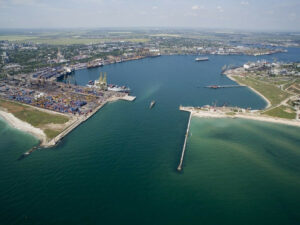Rosneft exports from Baltic ports may decrease by 20%

Due to sanctions, the export of russian oil from the ports of the Baltic Sea may decrease by 20% in December.
Export volumes of russian Urals oil from the Baltic ports may decrease by 20% after the Western “price ceiling” and the EU embargo on russian raw materials came into force.
According to traders, russia has not been able to completely redirect Urals exports from Europe to other markets, in particular, to India and China. It was also difficult for russian federation to find a sufficient number of ships to transport oil, Reuters reports.
According to the publication’s calculations and data from traders, Urals exports from ports on the Baltic Sea may fall to 5 million tons in December, compared to 6 million tons in November. According to some estimates, exports may decrease to 4.7 million tons.
The European Union, G7 countries and Australia imposed a maximum price on russian oil of $60/barrel, which came into force on December 5, in addition to the EU embargo on imports of russian crude by sea and similar commitments from the US, Canada, Japan and the UK .
The restriction allows non-EU countries to import seaborne russian oil, but prohibits shipping, insurance and reinsurance companies from handling cargoes of Russian oil around the world unless it sells for less than $60/barrel.
In December, Urals crude oil was sold at deep discounts, with its dominant buyer, India, buying barrels at a price well below the ceiling price.
The impact of the sanctions on the loading of Urals from the Baltic ports of russian federation was exacerbated by a shortage of non-Western tonnage, a weak export economy and moderate demand for the grade in Asia, especially in China.





